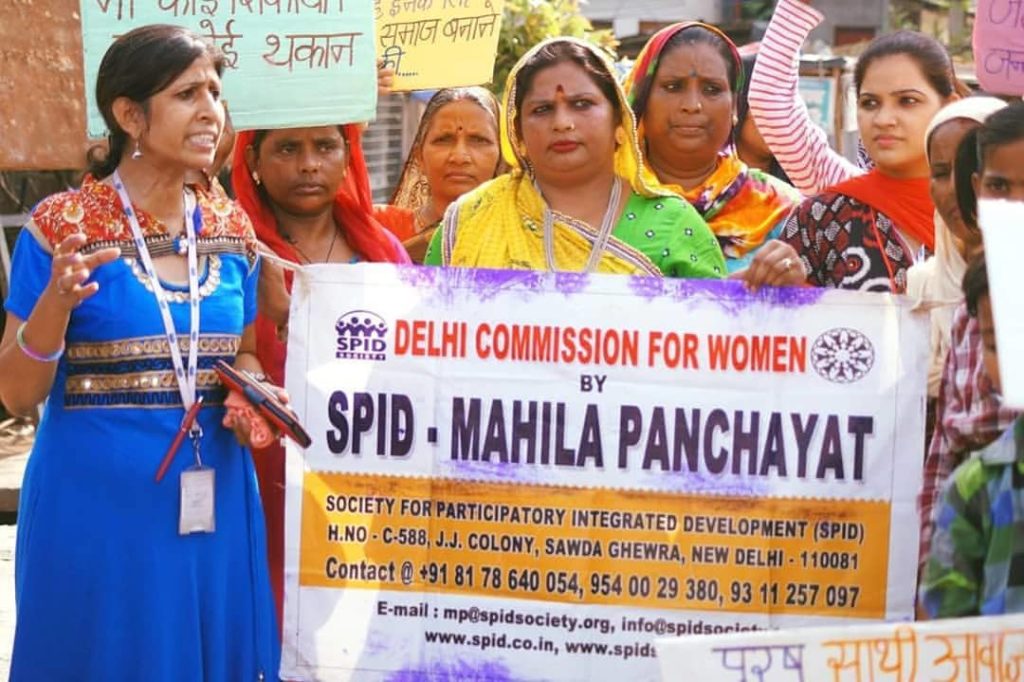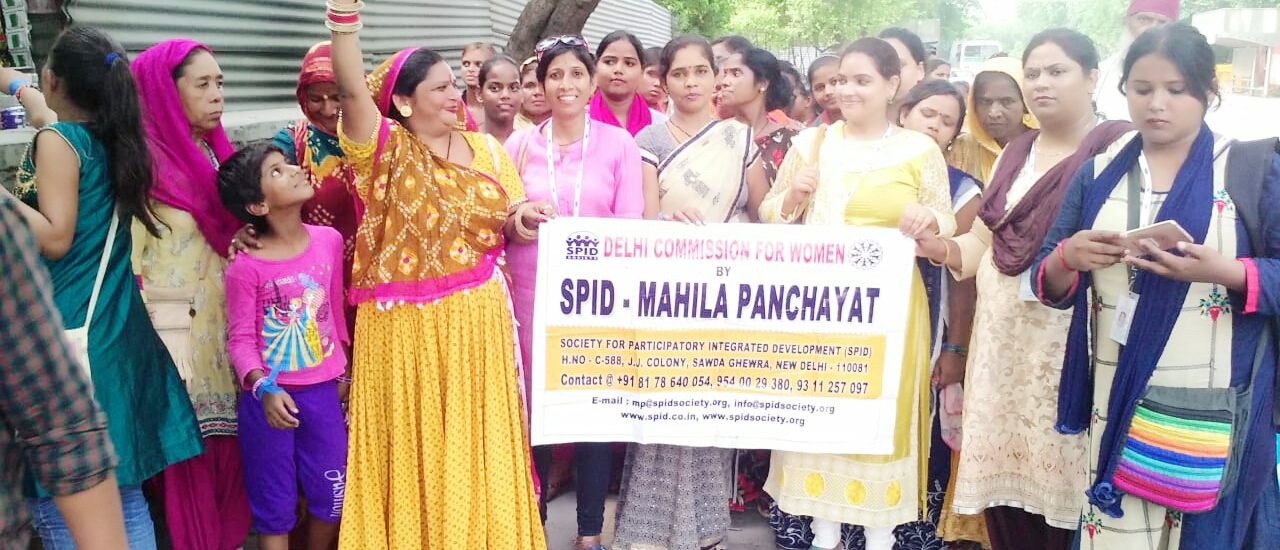The activities under Women Empowerment program are to encourage Social Empowerment, Legal Rights, Economic initiatives comprising of skill development, micro enterprises and entrepreneurship development, health promotion, Information Sharing & Networking, and most important non-formal functional literacy and Women empowerment.
SPID is emerged as an instrument to bring Social, Economic and Legal Empowerment of women, particularly those belonging to the under privileged and marginalized sections of the society.

Women in our society faces multitude of problems both mentally and physically. One of our biggest endeavour at SPID is to help women and strengthen their positon in society, spreading awareness about their rights and equality, empowering them with constitutional rights. While no single programme can address all the critical problems that women faces on daily basis, the programmes that are women-centric and effectively implemented have the potential to deliver justice and long lasting impacts. SPID–Mahila Panchayat is working for the welfare of women under PS Khanjawala in North West district of Delhi.
SPID is successfully delivering awareness for girls & women in the underdeveloped areas of Savda Ghewra, North-West. SPID has given benefits to girls & women, more domestic violence cases have been registered and solved and more than 25000 women have been aware through our women empowerment programmes.


